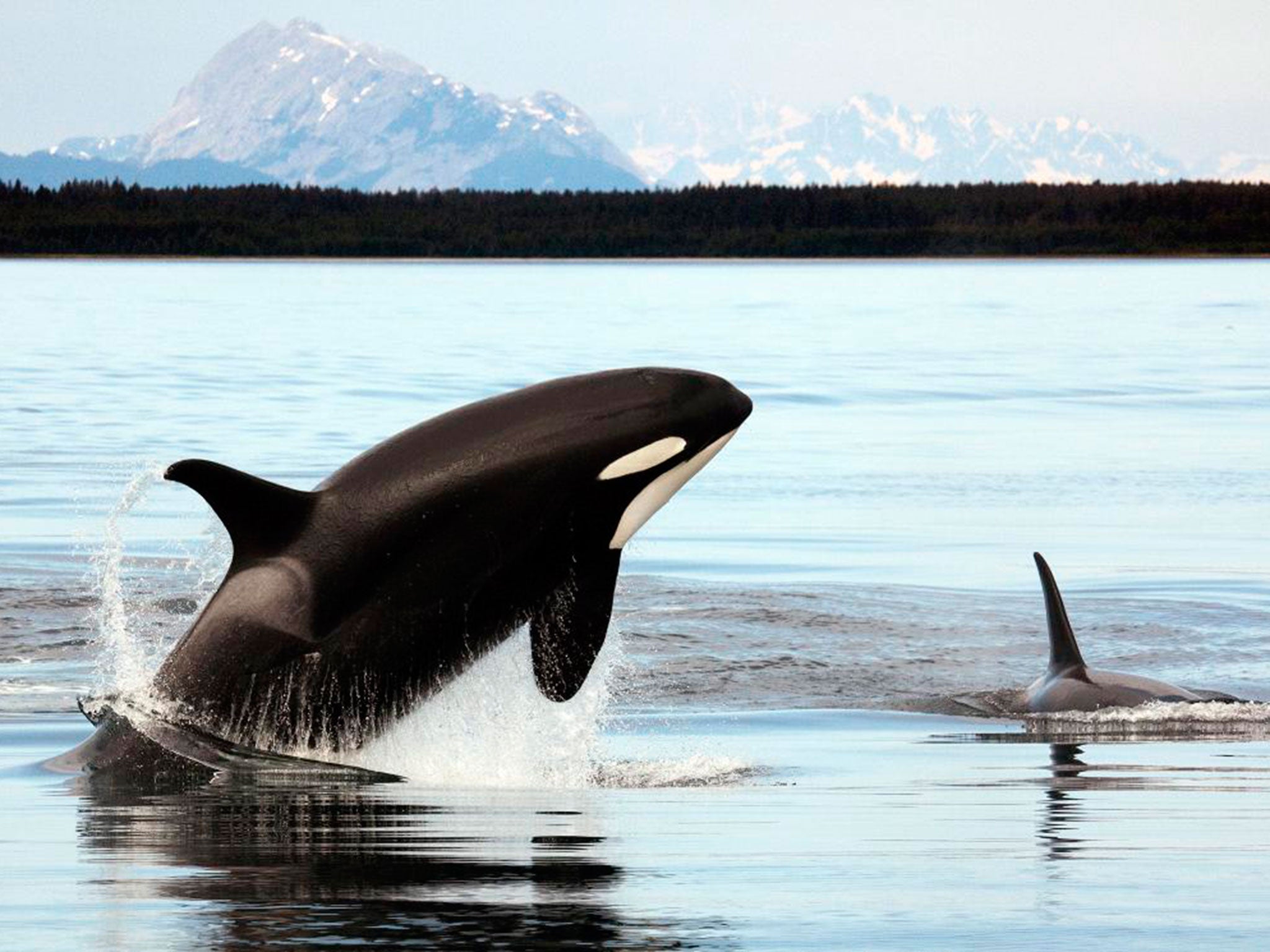Watch: Drones used to monitor killer whales for the first time
The groundbreaking study has allowed researchers to gain new insights into killer whale behaviour and help protect the endangered animals

Your support helps us to tell the story
From reproductive rights to climate change to Big Tech, The Independent is on the ground when the story is developing. Whether it's investigating the financials of Elon Musk's pro-Trump PAC or producing our latest documentary, 'The A Word', which shines a light on the American women fighting for reproductive rights, we know how important it is to parse out the facts from the messaging.
At such a critical moment in US history, we need reporters on the ground. Your donation allows us to keep sending journalists to speak to both sides of the story.
The Independent is trusted by Americans across the entire political spectrum. And unlike many other quality news outlets, we choose not to lock Americans out of our reporting and analysis with paywalls. We believe quality journalism should be available to everyone, paid for by those who can afford it.
Your support makes all the difference.Killer whales are often regarded as one of the ocean’s most intelligent species and now for the first time marine biologists have been able to gain an even more in-depth insight into the lives of these creatures, by using drones.
For the first time ever, researchers from the Vancouver Aquarium and the US-based National Oceanic and Atmospheric Administration (NOAA) have used UAV hexacopters to monitor groups of orcas that live off the west coast of North America, in a bid to safeguard their existence.
Of the whales to be monitored, these include the protected Northern Resident killer whales, as well as the endangered Southern Resident species.
Since the project began, there have been more than 60 flights and these have captured over 30,000 photographs and hours of amazing footage.
The photos and footage collected, have given scientists new perspectives on how whale pods live and it is hoped that these new insights can help in a bid to protect killer whales numbers and support population recovery.
According to researcher Dr Barrett-Lennard, “the advantages of this kind of observation are immediately obvious.“
Video: Drone captures massive killer whale pod
He said: ”We can determine much more about a whale's health and condition from above than we can from water surface level.“
One of the things that has benefited from the use of the drone has been in identifying pregnant whales. In just a few months, several whales have been identified as carrying young and this has been crucial in the calculating neonatal mortality rate.
Dr Barrett-Lennard, ”Identifying pregnancies, and then observing the outcome and number of calves born will allow more precision when calculating the neonatal mortality rate.“
The fact that whales can be viewed from so high up also means that pods can be viewed without disturbance from plane or boat engine noise.
This, according to researchers, has allowed observers to gain a far truer idea of the everyday behaviour killer whales.
”We saw fish chases, youngsters playing, a great deal of touching and social behaviour within family groups, killer whales and dolphins swimming together peacefully and much more. The bottom line is that the method worked wonderfully well.“
While this is the first time drones have been used to aid whale conservation, this method of monitoring is becoming increasingly popular in the animal conservation fight.
In recent times, drones have been used to in an effort to support rhino populations in Africa, while also being used as an important weapon in the fight against over fishing.
Join our commenting forum
Join thought-provoking conversations, follow other Independent readers and see their replies
Comments